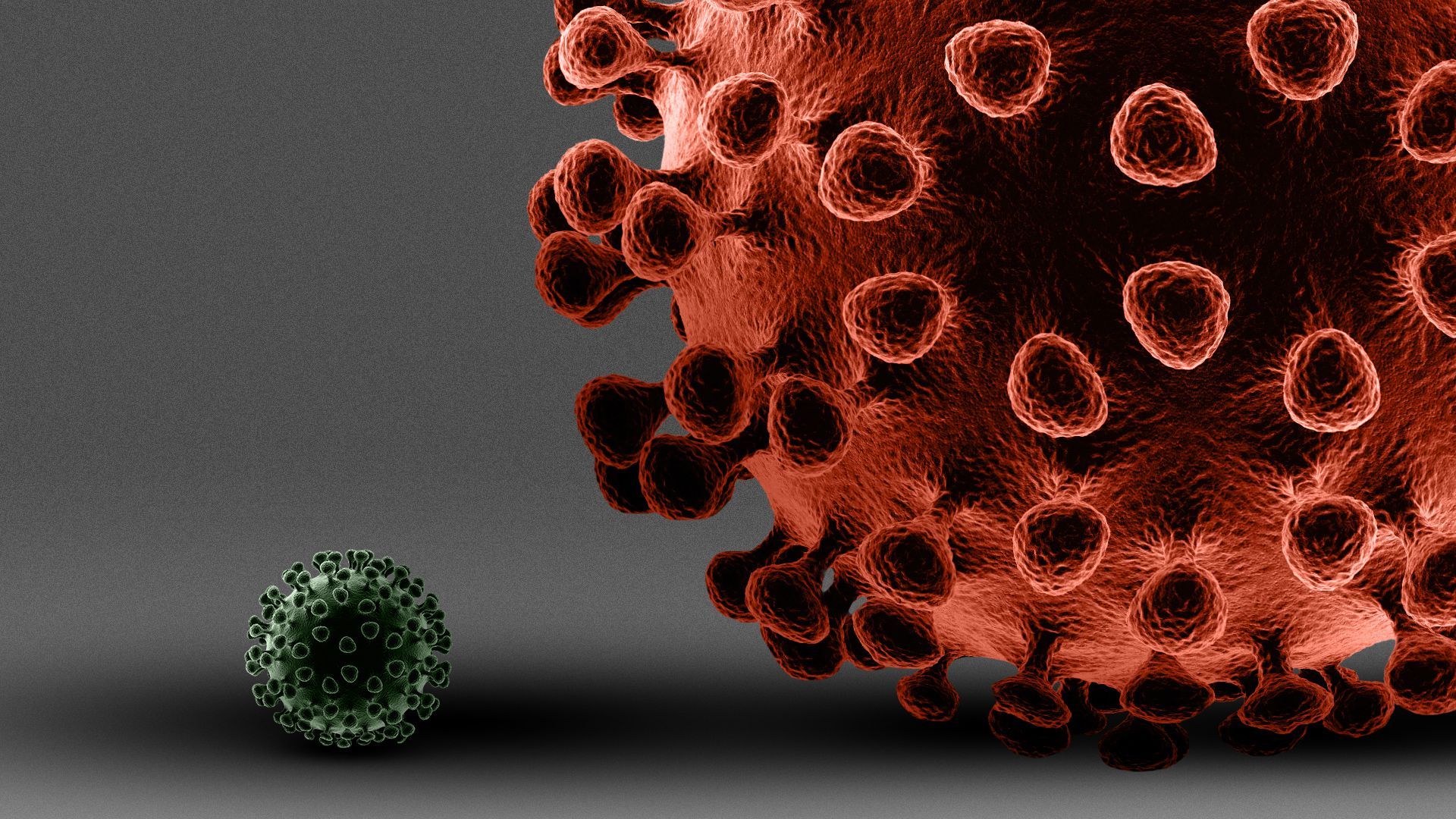
Illustration: Aïda Amer/Axios
Colorado health officials are closely monitoring several emerging COVID-19 variants they say could lead to a winter wave of infections — and potentially hospitalizations.
Driving the news: Roughly 30% of Coloradans who have caught the virus are estimated to have long COVID, per the latest figures from the American Academy of Physical Medicine and Rehabilitation.
- That means about 494,000 Coloradans are living with long-term symptoms like brain fog, hair loss and mental health issues, as medical researchers search for a cure to long COVID nearly three years into the pandemic.
State of play: Local scientists are tracking at least two new variants in recent weeks, including BF.7, which they say appears to be more contagious and elusive to immune response.
- The state's health department and Colorado School of Public Health published an updated statewide COVID modeling report earlier this month, which shows a variety of scenarios for the remainder of the year, including hospitalizations rising "steeply" by December if a new variant arrived in late September.
- Whether the state sees a surge as the temperatures fall depends on the prevalence of emerging variants and how many Coloradans receive the retooled Omicron booster, experts advise.
What they're saying: "This latest modeling report … highlights the unpredictability of our upcoming fall and winter respiratory virus season," said state epidemiologist Rachel Herlihy.
- "The best thing Coloradans can do right now to protect themselves is to get both a flu vaccine and … Omicron dose when they are eligible."
By the numbers: As of Monday, 8.9% of eligible residents have been boosted with the latest shot, representing about 344,000 doses — up from 5.3% a week earlier, according to state health department data provided to Axios Denver.
- COVID-19 hospital demand increased last week, but health officials say patient volumes remain relatively low — at about 10% of previous highs.
- If a new variant doesn't arise, model simulations indicate a decline in hospital demand over the next 12 weeks.
The big picture: Anthony Fauci, director at the National Institute of Allergy and Infectious Diseases, said last week that "we should not be surprised" if a new COVID-19 variant emerges this winter when more people are pushed inside, Axios' Sabrina Moreno reports.
- Meanwhile, long COVID continues to disable millions of Americans. Of the nearly 24 million adults in the U.S. who currently have long COVID, more than 80% are having some trouble carrying out daily activities, according to CDC data released last week.

Get more local stories in your inbox with Axios Denver.
More Denver stories
No stories could be found

Get a free daily digest of the most important news in your backyard with Axios Denver.
